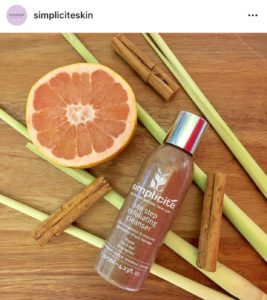When choosing the brand of products to be used, be careful of clever marketing as brands such as Johnson and Johnson, and Clearasil as they actually do more harm than good. Ensure you look no further than an organic line which has no chemicals, parabens, mineral oil, synthetic fragrance and other toxic ingredients.
One of the best influences you can have on your child for skin awareness is to express the importance of using sunscreen. Everyone still needs to receive their dose of vitamin D and so to keep them out in the sun but still protected, teach them why they need to use it and reapply later in the day.
Babies and Toddlers
The epidermis is significantly thinner in small children, with the top layer being only about two thirds the thickness of that in adults. Babies and children are more sensitive to a range of environmental conditions as they have a larger skin surface area to weight ratio. This means that chemicals absorbed through the skin tend to have a greater effect. It also means that their heat regulation differs, with infants losing heat through their skin more rapidly in cold temperatures, compared to adults. It is more important now than ever to ensure that the products that you are using are chemical free!
Before your baby is crawling, you actually don’t need to bathe them more than 2 to 3 times a week. Believe it or not, immersing yourself in water dehydrates the skin as it strips the natural oil in our skin. To help reverse this loss, it is best to apply oil to their skin after their bath. If you can keep up this good habit throughout their childhood, it will help them continue on throughout their teen and adult years.
Teen years
When should your children start to use beauty products? Well the best answer is throughout their whole life! However, since it is difficult to keep up with a routine, by the time they become teens, you have a hard time teaching them how to look after their skin properly.
As the teenage body begins to mature in preparation for adulthood, the skin must also adjust to a number of factors, including hormones, which significantly changes its structure and function. Adolescence brings about the maturation of the hair follicles, sebaceous (oil-producing) glands and sweat glands in the skin. The most notable change to occur within skin during the teenage years is the increased production of oil, or sebum which is caused by a surge in the sex hormones estrogen, androgen and progesterone which stimulate the sebaceous glands. This is the main culprit for teenage acne.
When your child starts to show these changes, this is when you need to delicately approach the subject of skincare. Recommending that they cleanse their skin everyday (day and night is preferable however if they can do it at least in the night time, it is a big step in the right direction) with a gentle cleanser and applying a light moisturizer. Even though I recommend moisturizing day and night, applying sunscreen on the face during the day is much more important and so if you had to choose, the sunscreen is the better option.
For young women, try to emphasize the importance of removing any residual make-up prior to bedtime to allow the skin time to breathe. Not only by removing the make-up from the skin will it stop the pores from clogging, it will also lessen the amount of dirt and grime that sticks to their pillows.
When choosing products for acne, please be careful not to purchase products that actually dry out their whole skin and not just their impurities. Through the right marketing, Clearasil has become one of the biggest products for teens and adults alike with acne. Even though they may have a short-term effect for getting rid of some of the acne, the product has a damaging effect on the cells long term causing dryness, dehydration, sensitivity, sun sensitivity, and premature aging. I recommend using Simplicite Blemish Gel or tea tree essential oil as a spot treatment or by using 2 drops with their moisturizer at night to try and remove the bacteria without causing negative effects on the skin. If the acne is severe, please consult your therapist or doctor.
Nutrition also plays a big role in helping to keep the acne at bay since it has a direct influence on our hormone level. Try and encourage your children to not eat foods that dramatically change their hormone balance such as simple carbohydrates (bread, pastries), sugar and for the older ones, caffeine and alcohol. In most cases, this is the hardest element to control with your children but please don’t give up explaining the effects and helping them choose their vices in moderation.


